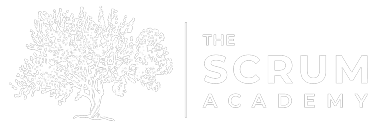When scaling Scrum and Agile, many software organizations experience the common struggle to coordinate and prioritize the work of multiple teams working together, aka dependency management. Many factors contribute to the complexity of identifying, tracking, managing and resolving dependencies. In my work as a consultant and instructor, I see multiple factors that making scaling harder than it needs to be – multiple projects being completed by the same people at the same, persistence of legacy code, lack of visibility on the true status of the work, understaffing of projects by senior leaders and weak enterprise-wide prioritization.
In my opinion, what makes scaling hard is not the coping mechanisms organizations use in these environments, but the pervasive effect of the
Industrial belief that mangers are best suited to distribute the work in order to maximize efficiency of individuals and specialists. This failure to let go of this 19th Century maxim – managers know best – is the main impediment to scaling. In 21st Century, knowledge work. It is my feeling that one of the best ways to scale (in part) is to give greater autonomy to collaborative, self-organizing teams.
So, what do I recommend people read in order to get new ideas on how to scale autonomous, collaborative, self-organizing teams? These two books will jump start your thinking and give you plenty to ponder:

Lean from the Trenches: Managing Large-Scale Projects with Kanaban (Henrick Kniberg): if you are looking for an incremental approach to scaling, I recommend exploring
Kanban. With its two simple rules – visualize the workflow and measure cycle time – Kanban will help you see the bottlenecks in your business and offers a stepwise approach to improve whatever you are doing when multiple teams work on the same product. In the book,
Henrick Kniberg provides an extended case study about how he used Kanban when developing software with multiple teams. Specifically, Henrick shares the structures they used to manage the dependencies and to improve over time. After reading this book, I feel confident you can successfully start your own Kanban teams.

Large-Scale Scrum: Get More with LeSS (Craig Larman & Bas Vodde): if you are looking for more daring and transformative ways on how to support multiple Scrum teams in a globally distributedenterprise, then perhaps Large-Scale Scrum (LeSS) has what you are looking for. LeSS takes basicScrum, the contents of any Certified ScrumMaster class, and uses Scrum principles to extend and augment the basics. What I like about this new book is that the authors have condensed the contents of their two previous books, Scaling Lean & Agile Development: Thinking and Organizational Tools for Large Scale Scrum and Practices for Scaling Lean & Agile Development, into a consumable series of rules, guidelines and suggested practices without having to read a 1000 pages!! This summary makes it much easier to visualize what a LeSS organization looks like.




